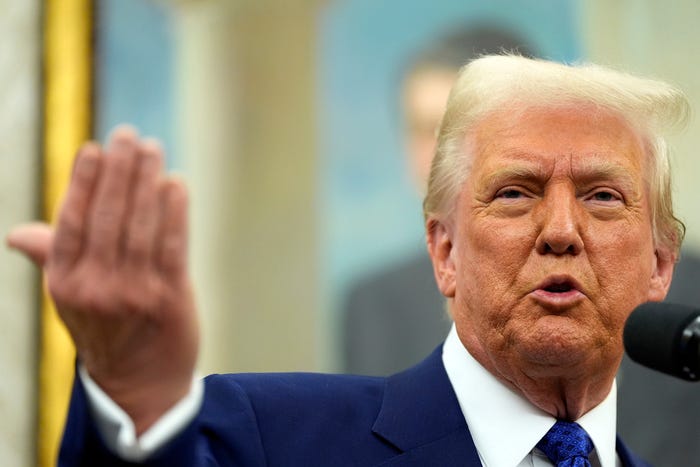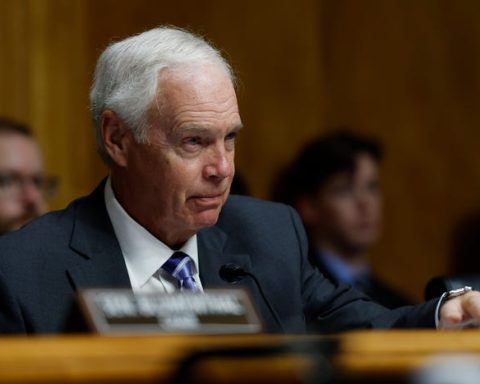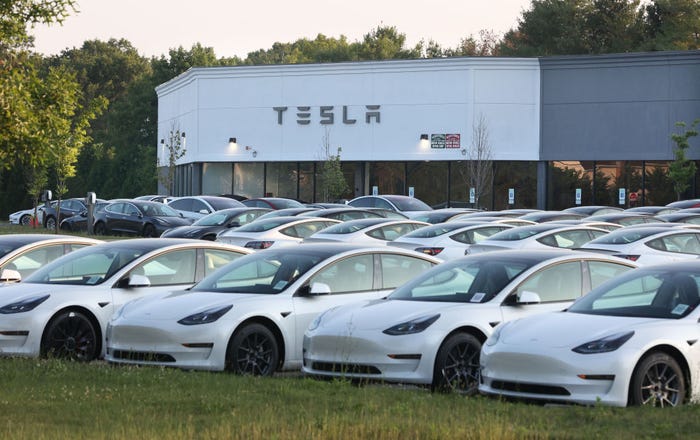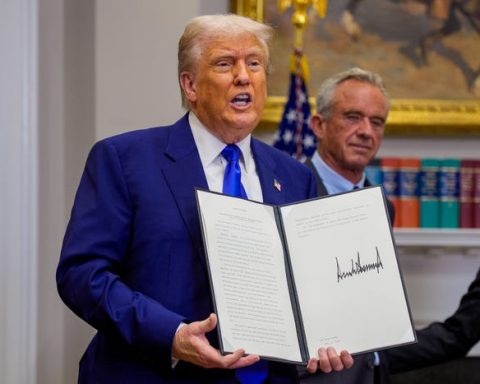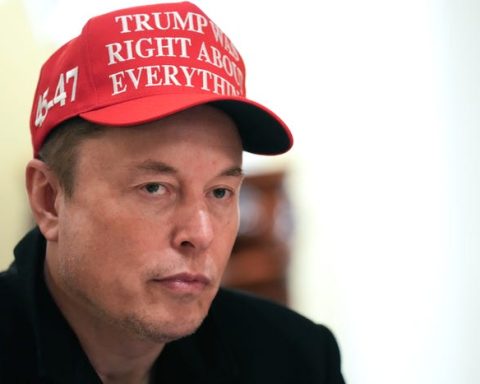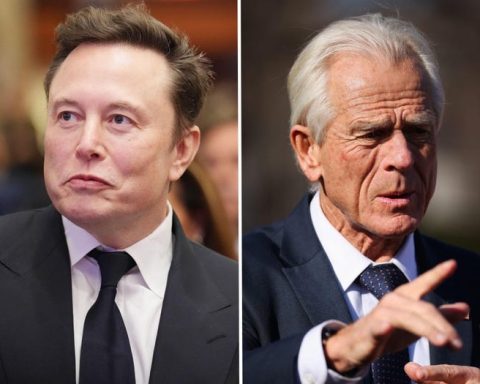President Donald Trump took to Truth Social early Thursday morning and threatened more tariffs on the European Union.
On Thursday, President Donald Trump announced plans to introduce additional tariffs on the European Union and Canada if they collaborate to inflict “economic harm” on the United States. “If the European Union works with Canada in order to do economic harm to the USA, large scale Tariffs, far larger than currently planned, will be placed on them both in order to protect the best friend that each of those two countries has ever had!” Trump stated in a post on Truth Social.
His statements follow his signing of an executive order on Wednesday, which implements a 25% tariff on auto imports, likely impacting European car manufacturers. Since returning to office in January, Trump has enforced significant 25% tariffs on steel and aluminum, as well as nearly all imports from Canada and Mexico, and raised tariffs to 20% for China. In early March, Canada announced it would retaliate with a 25% tariff on $155 billion worth of American goods.
The new Canadian Prime Minister, Mark Carney, made his first overseas visits to France and the UK, choosing not to visit the US. During his recent trip to France, Carney referred to Canada as the “most European of non-European countries.”
The White House did not immediately respond to a request for comment from Business Insider.
As tensions rise, US-European relations are already becoming strained. Trump’s threats of tariffs come at a time when Washington’s relationship with its European allies is under pressure due to his public stance on defense cooperation. The president has repeatedly cast doubt on US commitments to defending Europe, accusing its nations of taking advantage of America and failing to fulfill their responsibilities.
“It’s common sense, right?” Trump said to reporters earlier in the month. “If they don’t pay, I’m not going to defend them.”
Europe depends heavily on the US military, which maintains key bases across the continent. Furthermore, many European armed forces acquire advanced American weaponry, with capabilities like Lockheed Martin’s F-35 Lightning II serving as crucial elements of their defense systems and requiring American parts and maintenance support.
Leaders from countries such as Portugal and Denmark have voiced concerns regarding this reliance on American defense technology, suggesting they may reconsider the F-35 as their preferred military option. Canada’s defense minister has also indicated a cautious stance, stating that Ottawa is exploring “other alternatives” following Trump’s remarks that Canada could potentially become the 51st US state.
The future of the F-35’s foreign sales could signify a broader shift in Europe’s historical trust in the American defense system, a bond that was once seen as nearly unbreakable in the aftermath of World War II. In response to Trump’s rhetoric, the European Union has proposed a substantial plan to increase domestic defense spending by $840 billion in this “era of rearmament.”
